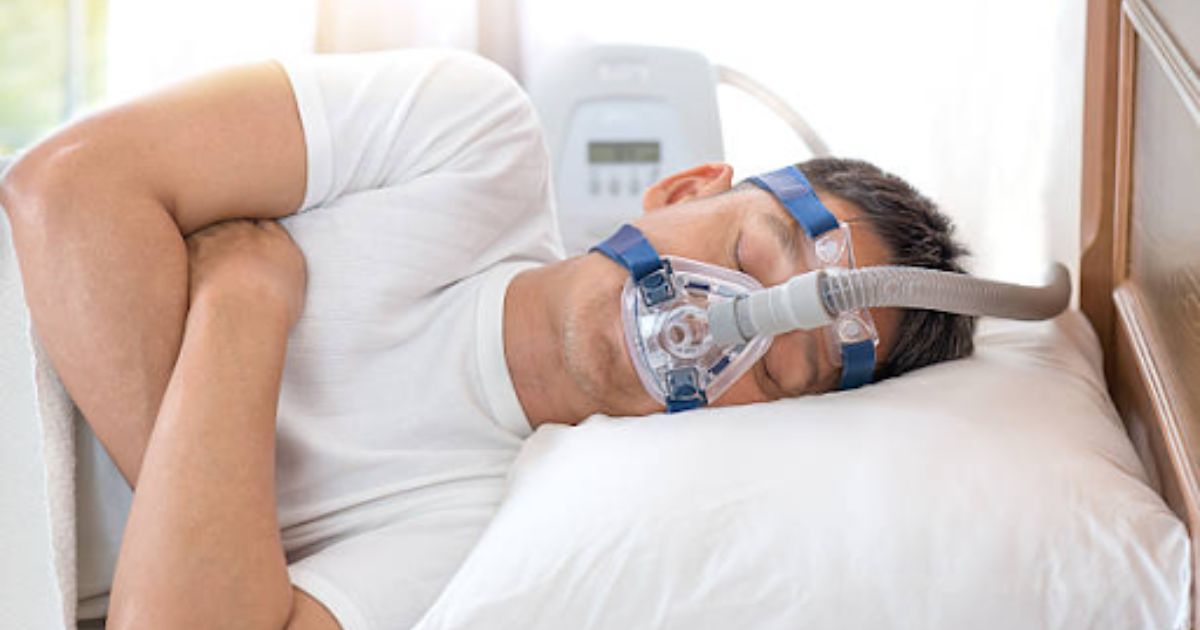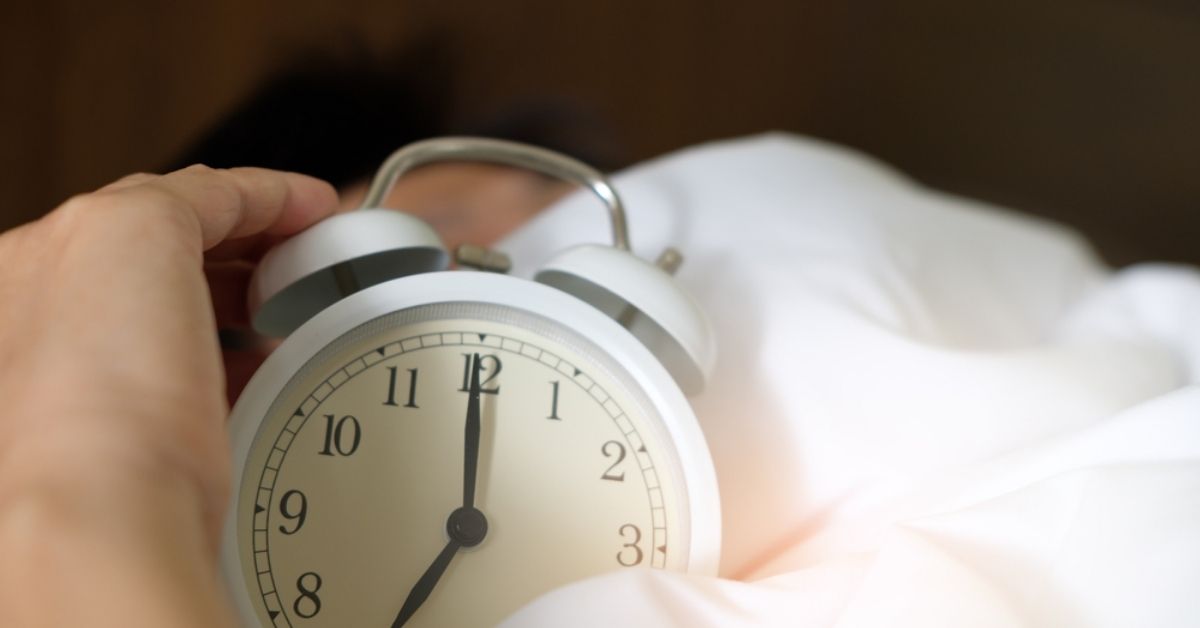Strokes and sleep apnea are two distinct yet interrelated health concerns that significantly impact individuals’ well-being. A stroke, characterized by a disruption in blood supply to the brain, poses severe and often irreversible consequences. On the other hand, sleep apnea, a sleep disorder marked by intermittent pauses in breathing during sleep, has emerged as a condition with profound implications for cardiovascular health. This has led many people to ask our team of sleep experts, “Can people die from sleep apnea?”
In this exploration, we delve into the intricate connection between strokes and sleep apnea, examining the risks, understanding their differences, and emphasizing the importance of awareness and proactive management. As we navigate the complexity of these health issues, it becomes evident that recognizing the interplay between strokes and sleep apnea is crucial for developing effective strategies to better overall health and prevent potential complications. Keep reading for the answer to ‘Can people die from sleep apnea?’
Table of Contents
- Can People Die from Sleep Apnea?
- Can Sleep Apnea Cause a Heart Attack?
- Sleep Apnea Risks: Understanding the Connection
- Exploring the Connection: Sleep Apnea and Stroke
- Where to Get a Sleep Apnea Test: A Vital Step Towards Awareness
- Navigating Sleep Apnea Recovery: A Multifaceted Approach
- How and Where to Get a Test for Sleep Apnea Near Jacksonville
Can People Die from Sleep Apnea?
Let’s jump right into, and answer the question, “Can people die from sleep apnea?” Sleep apnea, a disorder characterized by pauses in breathing during sleep, poses several risks, including the potential for fatalities.
While directly dying from sleep apnea is rare, the disorder can contribute to severe health complications that may lead to death. Untreated sleep apnea can elevate the risk of cardiovascular issues, strokes, and other life-threatening conditions. The repeated drops in blood oxygen levels during apnea episodes strain the cardiovascular system, causing issues in blood pressure like hypertension. This highlights the importance of addressing sleep apnea for overall health and well-being.
Can Sleep Apnea Cause a Heart Attack?
The relationship between sleep apnea and heart attacks is a significant concern in the realm of sleep medicine. Sleep apnea can indeed contribute to an increased risk of heart attacks. The intermittent cessation of breathing during apnea episodes triggers a stress response, leading to spikes in blood pressure and an elevated heart rate.
Over time, this chronic stress on the cardiovascular system can contribute to the development of atherosclerosis (hardening of the arteries) and increase the likelihood of a heart attack. Recognizing and addressing sleep apnea is crucial for mitigating these cardiovascular risks.
Sleep Apnea Risks: Understanding the Connection
The link between sleep apnea and strokes is well-established. Individuals with untreated sleep apnea may face an elevated risk of both ischemic and hemorrhagic strokes. Sleep apnea contributes to stroke risk through various mechanisms, including hypertension, atrial fibrillation, and impaired cerebral blood flow. The repeated disruptions in breathing during sleep can lead to oxygen desaturation, promoting inflammation and oxidative stress—factors associated with vascular damage and increased stroke susceptibility. Understanding this connection underscores the importance of addressing sleep apnea as part of stroke prevention strategies.
Understanding Strokes: A Brief Overview
Shifting our focus to strokes, it is essential to recognize that strokes are distinct from sleep apnea but share a complex relationship. Strokes occur when there is a disruption in blood supply to the brain, either due to a blockage (ischemic stroke) or bleeding (hemorrhagic stroke). Strokes can result in severe and often irreversible damage to brain tissues, affecting various bodily functions.

Exploring the Connection: Sleep Apnea and Stroke
Recent studies have underscored the intricate relationship between sleep apnea and strokes. Individuals with untreated sleep apnea are found to be at a higher risk of experiencing strokes compared to those without the sleep disorder. Sleep apnea contributes to stroke risk factors, such as hypertension, diabetes, and obesity, amplifying the overall likelihood of a stroke occurrence. Recognizing this connection emphasizes the importance of addressing sleep apnea as a preventative measure against strokes.
Where to Get a Sleep Apnea Test: A Vital Step Towards Awareness
Diagnosing sleep apnea is a crucial step in mitigating its risks and potential complications. If you suspect you or someone you know may have sleep apnea, obtaining a sleep apnea test is essential. Sleep studies, conducted in sleep centers or even in the comfort of your own home through portable monitoring devices, can provide valuable insights into sleep patterns, breathing abnormalities, and oxygen levels during sleep. Seeking professional guidance and undergoing a sleep apnea test is the first step toward effective management and improved health.
If you need a sleep apnea test near Jacksonville, give our team a call to discuss sleep testing.
Navigating Sleep Apnea Recovery: A Multifaceted Approach
For individuals diagnosed with sleep apnea, embarking on a journey toward recovery involves a multifaceted approach. Treatment options may include continuous positive airway pressure (CPAP) therapy, lifestyle modifications, weight management, and positional therapy.
CPAP therapy, in particular, has proven effective in maintaining open airways during sleep, reducing apnea episodes, and mitigating associated risks. Sleep apnea recovery often requires a commitment to long-term management strategies tailored to individual needs and health conditions.
Prioritize Your Wellbeing with Understanding Sleep Apnea Risks
Understanding the differences between strokes and sleep apnea is pivotal for prioritizing health and well-being. While strokes are acute events related to disruptions in blood supply to the brain, sleep apnea is a chronic sleep disorder that can contribute to various health risks, including an increased likelihood of strokes.
Recognizing the potential dangers of untreated sleep apnea, including the risks of heart attacks and strokes, underscores the importance of proactive awareness, seeking sleep apnea tests, and adopting appropriate interventions for recovery. Through informed decisions and a commitment to health, individuals can navigate the complexities of these health issues, ultimately promoting a better quality of life and longevity.
How and Where to Get a Test for Sleep Apnea Near Jacksonville
At the Jacksonville Sleep Center, we take pride in being your dedicated sleep health center partner on the journey to better sleep and overall well-being. As a trusted sleep center, we understand the profound impact that sleep has on your health and quality of life. Our experienced team of sleep specialists is committed to providing comprehensive diagnostic and therapeutic services tailored to your unique needs.
Whether you are grappling with sleep disorders such as sleep apnea, insomnia, or restless legs syndrome, we are here to offer state-of-the-art technology and personalized care. From conducting thorough sleep studies, including polysomnography and home sleep apnea testing, to collaborating closely with you on individualized treatment plans, we strive to enhance your sleep quality and overall health.
At the Jacksonville Sleep Center, we are dedicated to your well-being, ensuring that you receive expert guidance and help to get a restful night’s sleep.






